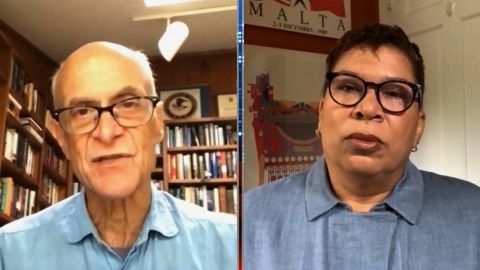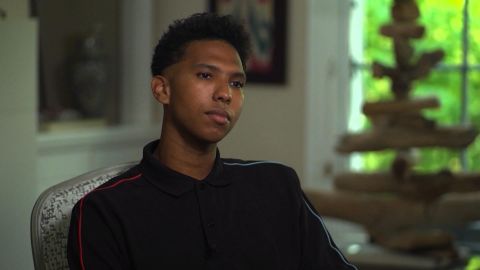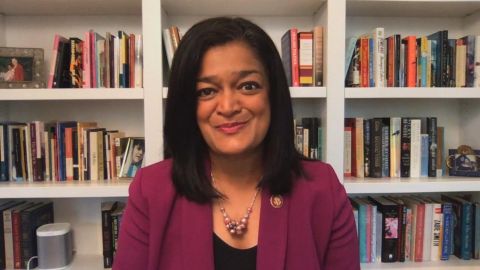Read Transcript EXPAND
CHRISTIANE AMANPOUR: Senator Moseley Braun, you paved the way, you blazed a path into the Senate as the first black woman. Has America come so far? I mean, it has, right? This is an amazing moment.
FMR. SEN. CAROL MOSELEY BRAUN (D-IL): It really is. Thank you so much for having me. I am delighted to be here. But remember, progress is never linear. It’s always — it fits and starts. And we are — I’m wearing white today, because we are commemorating the 100th year of the ratification of the 19th Amendment allowing women the right to participate as citizens, the right to vote. It took all that time to get the right to vote for female citizens, female Americans, and of course African-American women didn’t really get the right to vote until the Voting Rights Act of 1965. So, it’s been a long journey, and it’s just delightful to have Kamala Harris on the ticket as the vice- presidential nominee.
AMANPOUR: So, you know, let’s talk about how she and this moment may be — you know, may be less grating and jarring than when you made your run for president, when Hillary Clinton did. When you made your run for president, you said you were described in a newspaper article as delusional for doing so. And you’ve talked about double standards. You’ve said there are societal convolutions in both regards and you can clear one set of them and run a foul in another set. For instance, you know, you’re talking about being a woman and being a black woman.
MOSELEY: Right. Well, black women and women of color have a double whammy of having to deal with sexism and misogyny on the one hand and racism on the other. And again, but they both have the same effects in terms keeping people out, keeping people from being able to contribute whatever they have to give to the society as a whole. And so, they’re both evils that have to be acknowledged and I think worked on and fought at every turn. And I ran for president, because my little niece said to me, who was 12 at the time, she said, Auntie Carol, all president are boys, and I said, but no, sweety, girls can be president too. And my brother said, what’s the matter? I said, I just lied to Claire. I had lied to her because when I said girls can be president too, we’ve never had had a female president and we’ve never even had a female president of a major political party at that point, and it was not until Hillary Clinton became the candidate for president. And as you know, she won the popular vote, but did not become president. So, again, we are — it’s a continuing effort to move the arc of the universe, the moral universe forwarded to perfect our democracy, and that’s why this election, from my perspective, is so important because it really is a matter of making sure that we hold on to the promise of America and that we move this country forward and not slip backwards into autocracy, the kind of situation that you’re looking at in Russia right now.
About This Episode EXPAND
Christiane speaks with Carol Moseley Braun, the first Black woman to become a U.S. Senator and Pramila Jayapal, the first South Asian woman elected to the House of Representatives, about Kamala Harris’ historic nomination. She also speaks with photographer Tyler Mitchell about his new book “I Can Make You Feel Good.” Michel Martin talks to former Secretary of Homeland Security Michael Chertoff.
LEARN MORE



